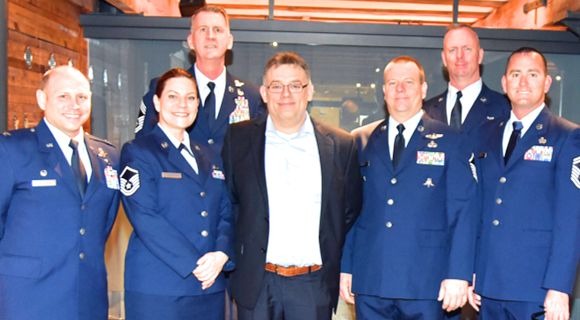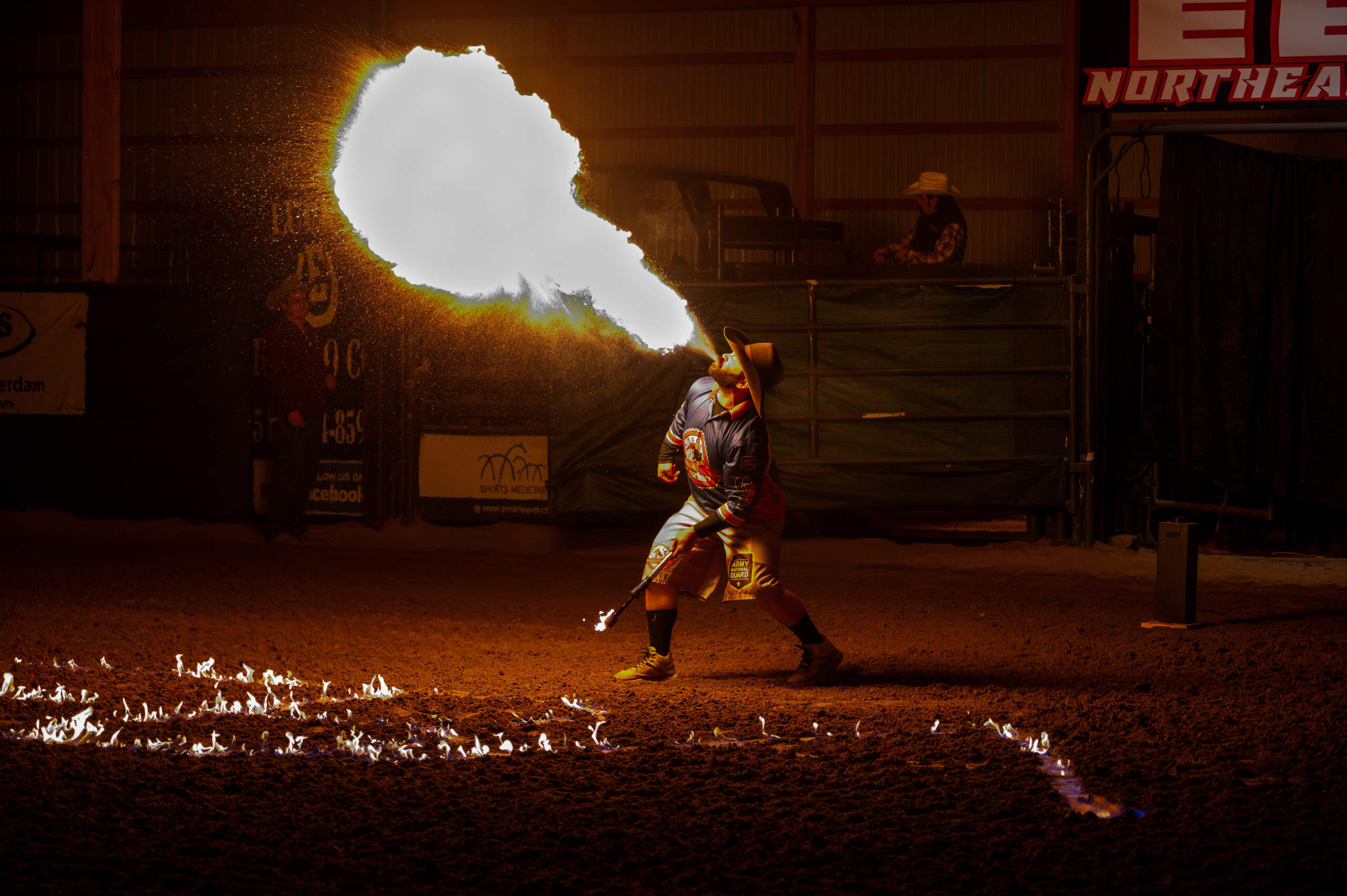VIDEO: 920th Rescue Wing Awarded German Medal of Honor For Long-Range, Open-Water Rescue
By Tech. Sgt. Lindsey Maurice, 920th Rescue Wing // February 6, 2018
only American unit to receive this award
ABOVE VIDEO: Seven months ago the 920th Rescue Wing put its long-range, open-water rescue abilities to the ultimate test. For saving two German sailors in distress at sea, they were awarded the German Medal of Honor. They are the only American unit to receive this award, and it’s the first time it has been presented in 20 years. “A big thank you to musician/composer Patrick O’Hearn for allowing us to use his song Devil’s Lake from his Indigo Album throughout the first half of this video,” said the 920th Rescue Wing at Patrick Air Force Base.

BELOW IS THE STORY THAT APPEARED ON JULY 7, 2017
BREVARD COUNTY, PATRICK AIR FORCE BASE, FLORIDA – In a concerted effort from July 7, and into the early hours of July 8, 2017, approximately 80 Airmen and four aircraft assigned to the 920th Rescue Wing successfully rescued two German citizens whose vessel caught fire approximately 500 nautical miles off the east coast of southern Florida.
At the request of the Coast Guard’s Seventh District in Miami, the 920th RQW was alerted by the Air Force Rescue Coordination Center at Tyndall Air Force Base, to assist in the long-range search and rescue.
“The rescue was a culmination of skill and teamwork that involved many throughout the 920th RQW, the Coast Guard, The AFRCC and the 45th Space Wing, who provided critical support to allow our aircraft to launch and recover,” said Col. Kurt Matthews, the 920th RQW commander.
“The specific capability with our Guardian Angel Airmen, combined with our air refueling and extended-range airlift makes us uniquely able to accomplish this mission where few others in the world can. I’m very humbled and glad to be a part of this noble mission,” he continued.
ABOVE VIDEO: 920th Rescue Wing saves two people 500 miles off South Florida coast.
Aircraft maintainers launched an HC-130P/N “King” fixed-wing combat rescue aircraft piloted by eight Airmen at approximately 2:30 p.m. transporting six Airmen who specialize in all types of rescue disciplines.
It was discovered during the planning stages that only one of the German victims spoke broken English, but was badly burned, therefore Master Sgt. Isabelle Kleirgraham, the 920th RQW Equal Opportunity noncommissioned officer in charge, was tasked to join the team due to her ability to speak fluent German.
The team arrived on scene two hours later and orbited overhead while King Ops, from the 39th Rescue Squadron at Patrick AFB, communicated with the ship below, the Nord Nightingale.
“We had the lifeboat in the water and the freighter was about 2 miles away,” said Capt. Dan Morgese, an aircraft commander. Finally, five pararescuemen plunged into the ocean.
“Anytime you are putting someone out over the Atlantic (Ocean), it’s concerning,” said Morgese. “We train for this. It all worked out just fine. If there was a day to do it, it was today; the weather was perfect.”
At the scene, the Nightingale motored a small boat toward the victims which allowed the pararescue Airmen to hoist the father-son duo onboard while several of the other rescue Airmen zoomed over to pick up the parabundles of medical equipment that splashed down just after them.
Around the same time the HC-130 arrived on scene 500 miles away, two HH-60G Pave Hawk helicopters departed Patrick AFB with full tanks of gas to retrieve everyone and transport the victims to Orlando Regional Medical Center.

Fortunately a Pave Hawk can fly approximately 500 miles on one tank of gas, the approximate distance to the scene. To top off their gas tanks, the helicopters met up with the HC-130 on its return to Patrick AFB for aerial refueling.
About an hour later, an additional HC-130 took off from Patrick AFB to serve as fuel reserve for the helicopter’s return trip.
“Kudos to maintenance for getting us airborne,” said Morgese. “They (the HC-130s) are 93 models; our maintainers work hard.”
The pararescuemen treated and stabilized the patients, then transfered them to the Nightingale to be picked up by the inbound helicopter.
At approximately 8:20 p.m., the two Pave Hawk crews hoisted and recovered all seven from the ship and journeyed back to central Florida where they landed on an Orlando High School football field at 1:30 a.m. and handed off the patients to the Orlando Fire Department to get them to their final destination, the Orlando Regional Medical Center.
“When you actually get to do something you train for; it’s really satisfying,” said Morgese. “Excellent communication and planning among all involved, made the mission successful.”
CLICK HERE FOR BREVARD COUNTY NEWS














